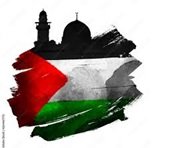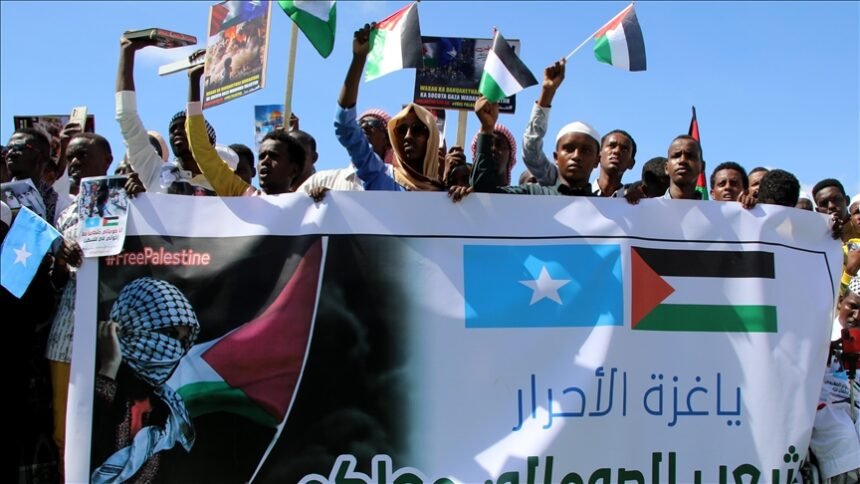By Abdullahi A. Nor
The streets of Garowe, Puntland, usually bustling with the hum of daily life, are now abuzz with talk of a shocking international proposal: the resettlement of displaced Gazans in Puntland State. News of this plan has sent shockwaves through the region, sparking outrage among Puntland’s leadership and citizens alike.
The idea, reportedly backed by Israel, is part of a broader strategy to reduce Gaza’s population and address what Israeli authorities describe as a persistent security threat. Puntland, a semi-autonomous region in Somalia’s northeast, was identified as one of the locations for resettling thousands of Gazans. But for Puntland’s people and government, the very suggestion is nothing short of an affront to their sovereignty, stability, and identity.
A Plan Without Consultation
The plan surfaced without any prior consultation with Puntland’s leadership, raising immediate suspicions. Why Puntland? Why now? Questions abound, but answers remain elusive.
Abdi Farah Said “Juha,” Puntland’s Minister of Interior, wasted no time in rejecting the proposal outright. His voice was steady but filled with anger as he addressed local journalists: “This is not just a bad idea; it’s a dangerous one. Puntland is not a dumping ground for international crises. We have our own challenges to deal with—security, resource shortages, and displaced people from our own communities. We will not allow anyone to destabilize our region with reckless plans.”
His words resonated far beyond the press conference, striking a chord with Puntlanders who have always been fiercely protective of their autonomy and way of life.
Yaqub Abdalla, deputy minister of information and tourism stated “Puntland stands in solidarity with the Palestinian people’s just aspirations and self-determination in line with international law.
We stand firmly in support of the freedom and lasting resolution that upholds the rights of the Palestinian people, ensuring peace, dignity, and stability in the region.”
Security Risks Loom Large

Puntland has long been a relative oasis of stability in the volatile landscape of Somalia. However, it remains vulnerable to threats from Al-Shabaab, the extremist group that has terrorized parts of the country for years. For Puntland’s security forces, the resettlement plan is nothing less than a ticking time bomb.
General Abdullahi Mohamed, a senior security official in Puntland, expressed grave concerns: ” Al-Shabaab would seize on this immediately. They thrive on narratives of foreign interference. This would give them the perfect excuse to escalate attacks and recruit more fighters.”
Security analysts warn that the resettlement could provide Al-Shabaab with powerful propaganda tools, portraying the Gazans as foreign invaders imposed by Israel and Western powers. This would not only endanger the new arrivals but also compromise Puntland’s hard-earned stability.
Humanitarian Concerns and Economic Realities
Beyond security, the proposal raises significant humanitarian and economic questions. Puntland is already struggling to meet the needs of its own population. Water scarcity, limited healthcare, and high unemployment are daily challenges. Adding thousands of refugees to the mix would stretch these limited resources to the breaking point.
Ali Jama, Director of Puntland’s Ministry of Planning, did not mince words when asked about the feasibility of the plan:
“We are already at our capacity. Our health services are overwhelmed, and our infrastructure is underdeveloped. How can we absorb thousands of people from Gaza? It would be a disaster for everyone involved.”
In places like Garowe, Bosaso, and Galkayo, where even access to clean water can be a struggle, local residents fear the impact on their communities.
Fatima Ali, a schoolteacher in Garowe, voiced the sentiment shared by many: “We have nothing against the Palestinian people—we love and support them. But the solution is not to bring them here. They belong in their homeland, not in Puntland.”
A Region with a Deep Connection to Palestine
Puntland’s rejection of the plan is not born out of hostility toward the Palestinian people. On the contrary, Somalia as a whole has always stood in solidarity with Palestine. The Palestinian cause resonates deeply with Somalis, who see parallels in their own struggle for peace and dignity.
However, many Puntlanders believe that this plan is part of a larger effort by Israel to depopulate Gaza, erasing Palestinian identity and scattering them across foreign lands. The proposal is seen as a political maneuver rather than a genuine humanitarian effort.
Dr. Ahmed Warsame, a political analyst in Bosaso, explained:
“This is not about helping Gazans; it’s about solving Israel’s problem at someone else’s expense. If Puntland were to agree to this, it would be complicit in the forced displacement of a people from their homeland. The international consequences would be severe.”
Public Outcry and Growing Resistance
As the news spread, Puntland’s residents took to social media and local radio stations to voice their opposition. Hashtag campaigns like #PuntlandNotForSale and #SolidarityNotResettlement became rallying cries, reflecting the public’s determination to protect their land and identity.
Traditional elders, community leaders, and youth groups have all come together to reject the plan. In a rare show of unity, Puntland’s various clans and factions set aside their differences to oppose what they see as a common threat.
Hussein Abshir, a traditional elder from Galkayo, warned of the social unrest that could follow such a plan: “Our region is peaceful compared to the rest of Somalia. If this plan goes forward, it will create tension and conflict between locals and newcomers. We don’t want that.”
The Broader Geopolitical Context
The proposed resettlement also risks entangling Puntland in the broader geopolitics of the Middle East. Somalia has always aligned itself with the Arab world on the Palestinian issue. Any cooperation with Israel on such a plan would damage Puntland’s relations with Arab and Muslim-majority countries, isolating it diplomatically.
International human rights organizations would likely condemn the plan as ethnic cleansing and forced displacement, further complicating Puntland’s position.
A Firm and Unified Rejection
For now, the message from Puntland’s leadership and its people is clear: “We stand with Palestine, but not like this. The solution lies in restoring their rights in their own homeland—not exiling them to Puntland,” said Minister Juha. “Our region will not be used as a pawn in this geopolitical game.”
As the controversy continues to unfold, one thing is certain: Puntland will not quietly accept being drawn into a plan that threatens its stability and identity. What remains to be seen is how the international community responds and whether this dangerous idea will be abandoned for good.
Abdullahi A. Nor
Email: abdulahinor231@gmail.com


Leave a Reply